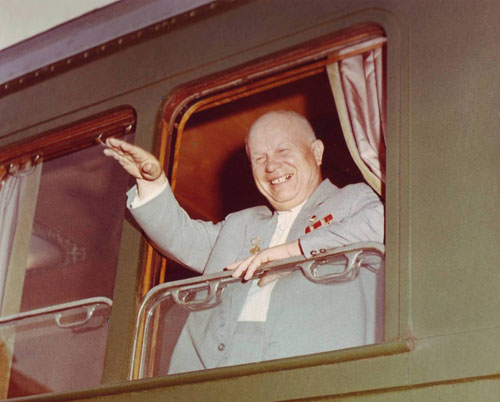After Stalin, Khrushchev was the next important leader of the Soviet Union. Once his rule was secure in 1955, Khrushchev denounced Stalin's reign of terror and reformed how the Soviet Union did business.
Here is what Khrushchev wrote in his memoirs about Stalin's paranoia and its human costs:

"Stalin called everyone who didn't agree with him an 'enemy of the people.' He said that they wanted to restore the old order, and for this purpose, 'the enemies of the people' had linked up with the forces of reaction internationally. As a result, several hundred thousand honest people perished. Everyone lived in fear in those days. Everyone expected that at any moment there would be a knock on the door in the middle of the night and that knock on the door would prove fatal ... [P]eople not to Stalin's liking were annihilated, honest party members, irreproachable people, loyal and hard workers for our cause who had gone through the school of revolutionary struggle under Lenin's leadership. This was utter and complete arbitrariness. And now is all this to be forgiven and forgotten? Never!"
For example, Khrushchev dismantled Stalin's secret police and allowed other politicians to check his power. However, he wasn't a full champion of Western-style freedom: Khrushchev maintained Soviet control over ideas and speech, and the Soviet Union's ultimate goal remained the spread of communism around the world.
As for Eisenhower, he was just as committed to fighting communism as his predecessor, but he used less confrontational methods.
"This is a war of light against darkness, freedom against slavery, Godliness against atheism."
- Dwight D. Eisenhower on the Cold War
Eisenhower feared the consequences of constructing huge arsenals of atomic weapons and escalating military threats. This fear caused him to pursue diplomacy and alliances over threats of force--and it also caused his political opponents at home to label him weak.
Review what you know about the leaders of the Cold War by connecting each phrase on the left to the correct answer on the right.
|
Truman and Stalin had a(n) _________ relationship.
|
amicable
confrontational
|
|
Eisenhower used _________ to defuse conflicts with the Soviet Union.
|
diplomacy
threats
|
Complete
